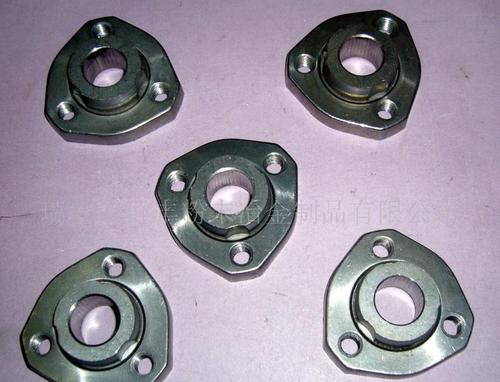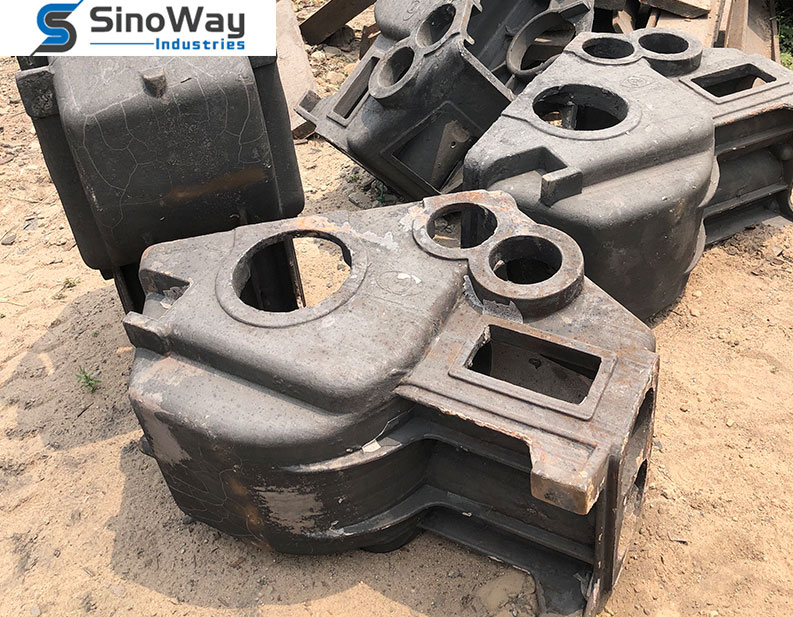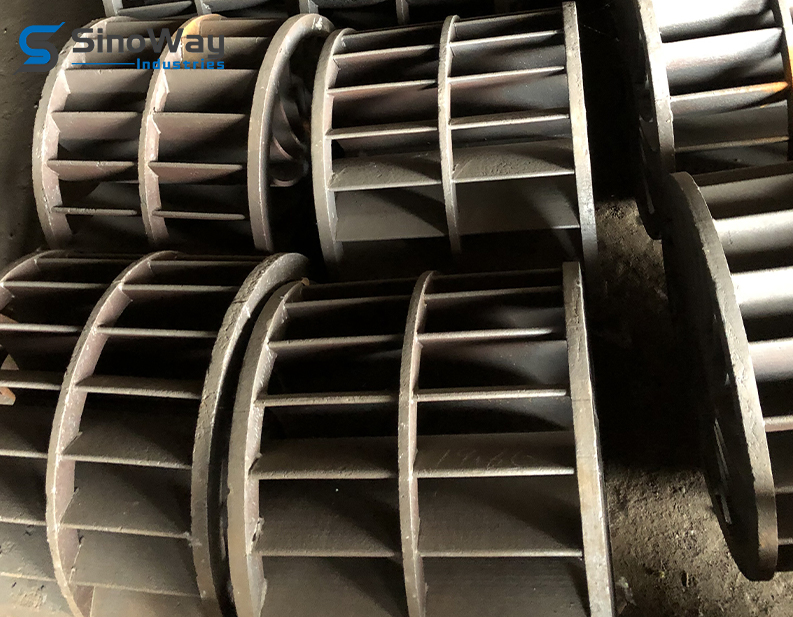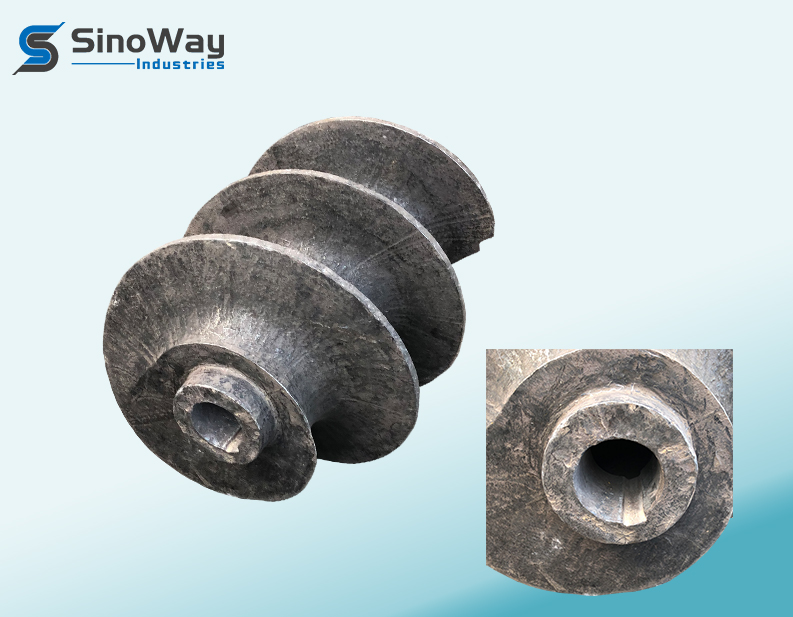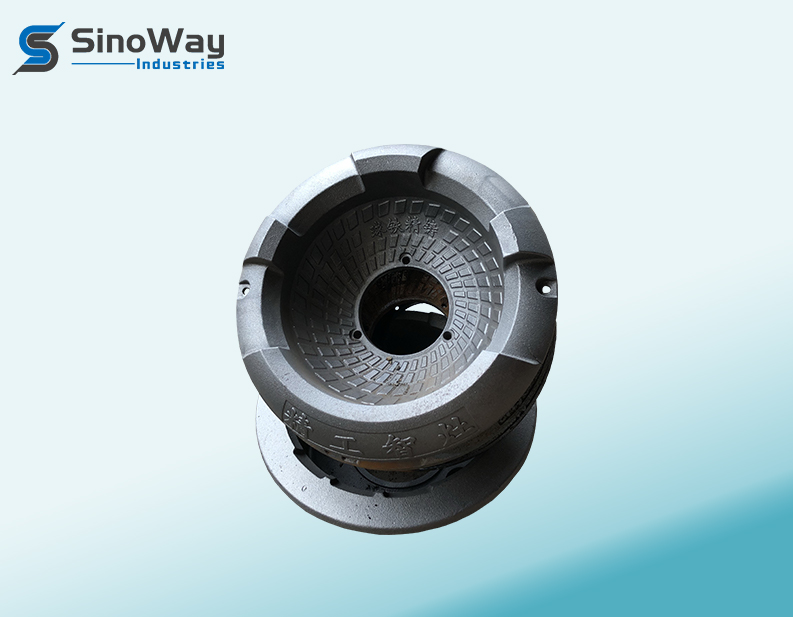Iron casting is a foundational process in modern manufacturing, providing the backbone for countless industries, from automotive to construction. As a leading sheet metal manufacturer, Sinoway understands that pricing iron castings can be complex, influenced by a wide array of variables. For businesses seeking reliable and cost-effective solutions, understanding these factors is crucial in making informed purchasing decisions. In this article, we’ll dive deep into the elements that impact the cost of iron casting and how Sinoway ensures competitive pricing without compromising on quality.
Understanding Iron Casting
Iron casting involves pouring molten iron into a mold to create parts of specific shapes and sizes. The process is valued for its versatility, allowing manufacturers to produce intricate and robust components efficiently. However, the cost of iron casting is determined by more than just the raw materials and labor—it is a balance of technical, economic, and logistical considerations.
Key Factors Influencing Iron Casting Costs
- Material Selection
- Design Complexity
- Production Volume
- Mold Type and Tooling
- Labor and Overhead
- Finishing Processes
- Quality Assurance
- Shipping and Logistics
Material Selection: The Foundation of Cost
The first and most obvious factor is the type of iron used. Grey iron, ductile iron, and malleable iron each have different properties and price points. For instance, ductile iron typically costs more due to its superior strength and ductility. Additionally, fluctuations in global iron ore prices and alloying elements (like carbon, silicon, or magnesium) directly impact material costs. Sinoway works closely with trusted suppliers to secure high-quality materials at competitive rates, passing the savings onto our clients.
Design Complexity and Its Impact
The complexity of a casting’s design plays a pivotal role in determining its cost. Intricate shapes, thin walls, and fine details require more sophisticated molds and advanced manufacturing techniques, which can increase both tooling and labor expenses. At Sinoway, our engineering team collaborates with clients to optimize designs for manufacturability—striking a balance between functionality and cost-effectiveness.
Production Volume: Economies of Scale
One of the most significant cost drivers is the number of units ordered. Higher production volumes allow for the distribution of fixed costs—such as tooling and setup—over more parts, reducing the per-unit price. Conversely, small batch production tends to be more expensive per item. Sinoway offers flexible production runs to accommodate both prototyping and mass production, ensuring that clients receive the best possible pricing based on their needs.
Mold Type and Tooling Costs
The choice of mold—whether sand, permanent, or investment—affects both the initial investment and the recurring costs. Sand molds are generally less expensive and suitable for short runs, while permanent molds require a higher upfront cost but are more cost-effective for large volumes. Tooling costs also vary depending on the precision and durability required. Sinoway leverages advanced mold-making technologies to minimize setup times and costs.
Labor and Overhead
Labor costs are influenced by the complexity of the casting process, the level of automation, and the skill of the workforce. Overhead expenses such as facility maintenance, energy consumption, and equipment depreciation also contribute to the final price. Sinoway invests in automation and continuous staff training to enhance productivity and reduce labor-related costs—benefits that are reflected in our pricing.
Finishing Processes: Beyond the Pour
Iron castings often require additional finishing processes such as machining, painting, coating, or heat treatment to meet precise specifications. Each finishing step adds to the overall cost, depending on the level of detail and quality required. Sinoway’s integrated finishing services ensure that all parts meet stringent standards while maintaining cost efficiency.
Quality Assurance and Inspection
Ensuring the quality of iron castings is non-negotiable. Comprehensive inspection and testing—such as dimensional checks, metallurgical analysis, and non-destructive testing—are essential to guarantee product reliability. While these processes add to the cost, they are crucial in preventing defects and reducing long-term expenses related to product failure. Sinoway employs rigorous quality control protocols to deliver castings that exceed industry expectations.
Shipping, Logistics, and Lead Time
The final price of iron castings is also shaped by shipping and logistics. Transportation costs depend on the weight, volume, and destination of the products. Additionally, expedited orders may incur extra charges. Sinoway’s strategic location and robust logistics network enable us to offer timely deliveries at competitive shipping rates, ensuring that clients receive their orders on schedule.
Comparing Iron Casting with Sheet Metal Fabrication
As a renowned sheet metal manufacturer, Sinoway also provides sheet metal fabrication services. While both iron casting and sheet metal fabrication are vital to manufacturing, they serve different applications. Iron casting is ideal for producing complex, heavy-duty components, whereas sheet metal fabrication excels in creating lightweight, high-precision parts. Businesses often consult Sinoway to determine the most cost-effective and technically suitable process for their specific needs.
What About CNC Machining?
Another critical process in modern manufacturing is cnc machining. This technique involves the use of computer-controlled machines to precisely cut, drill, or shape metal components. CNC machining is often used alongside iron casting or sheet metal fabrication to achieve tight tolerances and intricate details. At Sinoway, our investment in state-of-the-art cnc machining equipment allows us to offer comprehensive solutions, from raw casting to finished parts, streamlining production and reducing costs for our clients.
Case Study: Sinoway’s Approach to Cost Optimization
Sinoway recently partnered with a leading construction equipment manufacturer to produce a series of custom iron castings. By leveraging our in-house design optimization, advanced mold-making, and integrated finishing capabilities, we were able to reduce the client’s total production cost by 18% compared to traditional suppliers. Our transparent pricing structure and commitment to quality ensured that the client received both value and peace of mind.
Why Choose Sinoway?
- Comprehensive solutions: From design to delivery
- State-of-the-art equipment and skilled workforce
- Flexible production runs for all order sizes
- Stringent quality assurance and on-time delivery
- Expertise in both iron casting and sheet metal manufacturing
Conclusion: Making Informed Decisions
The cost of iron casting is influenced by a multitude of factors, from material selection and design complexity to production volume and finishing requirements. As a trusted sheet metal manufacturer and iron casting specialist, Sinoway is dedicated to helping clients navigate these variables to achieve the best value for their investment. By understanding the key cost drivers and leveraging Sinoway’s expertise, businesses can make informed decisions and secure high-quality, competitively priced castings for their projects.
For more information about our iron casting, sheet metal fabrication, or cnc machining services, contact Sinoway today—your partner in advanced manufacturing solutions.


